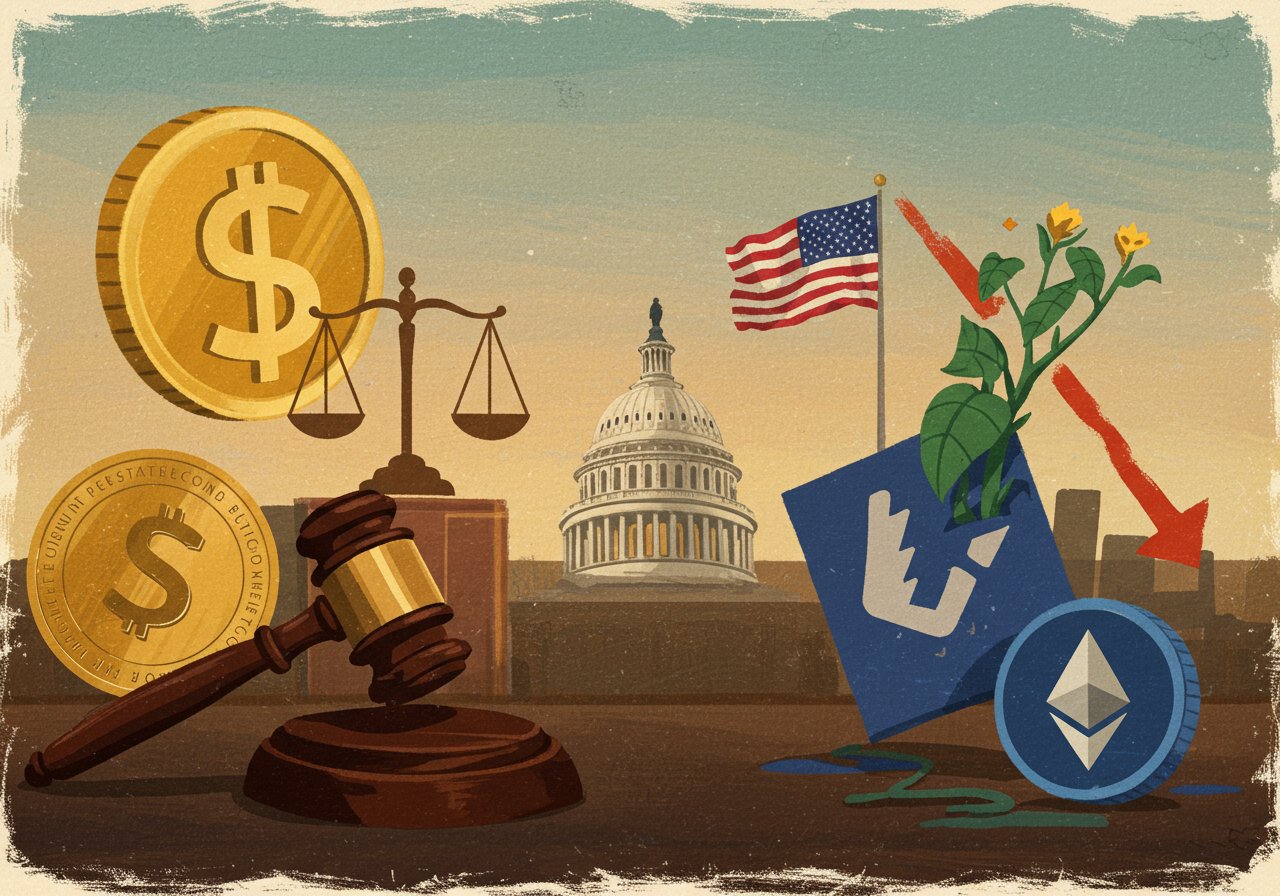
Stablecoin Regulation Stumbles in the Senate
The US Senate has dealt a setback to the cryptocurrency industry, with the “Guiding and Establishing National Innovation for US Stablecoins of 2025 Act” (GENIUS Act) failing to pass a crucial procedural vote on May 8. This bill, backed by a bipartisan group of senators, aimed to provide regulatory clarity for stablecoins, a type of cryptocurrency pegged to the value of fiat currencies, particularly the US dollar.
The bill‘s failure can be attributed to a last-minute withdrawal of support from Democrats, who expressed concerns about the bill‘s potential impact on US economic dominance and raised questions about US President Donald Trump’s alleged involvement in cryptocurrency ventures.
Despite attempts to address Democratic concerns by amending the bill to include stricter requirements for stablecoin issuers and provisions for Anti-Money Laundering, the GENIUS Act ultimately fell short. This signals a potential roadblock for the US government’s efforts to establish clear regulatory frameworks for the nascent cryptocurrency sector.
A Blow to Bipartisanship and Crypto Regulation
The GENIUS Act was seen as a significant step forward in the ongoing debate surrounding crypto regulation. It sought to address the growing use of stablecoins as a means of payment, potentially strengthening the US dollar‘s global dominance and providing regulatory clarity for this emerging sector.
The bill‘s failure highlights the deep divisions within the US political landscape regarding cryptocurrency policy. While many Republicans view crypto as a potential engine for innovation and economic growth, Democrats appear to be more cautious, emphasizing potential risks associated with this nascent technology. The bill‘s defeat, however, could lead to increased regulatory uncertainty, potentially hindering the development and adoption of stablecoins and other digital assets in the US.
Outlook for Crypto Regulation Remains Uncertain
The GENIUS Act‘s failure serves as a reminder of the complexities and challenges surrounding cryptocurrency regulation. The US government is navigating uncharted waters, attempting to balance innovation with financial stability and consumer protection.
With no clear path forward for stablecoin regulation, the industry will likely continue to face uncertainty and scrutiny. It remains to be seen whether Congress can overcome these political hurdles and provide a regulatory framework that fosters innovation while safeguarding consumers and the financial system. This event underscores the need for continued dialogue and compromise among policymakers to find a way to navigate the future of cryptocurrency in the US.
“Democrats have been accommodated every step of the way […] frankly, I just don’t get it.” – Senate Majority Leader John Thune


